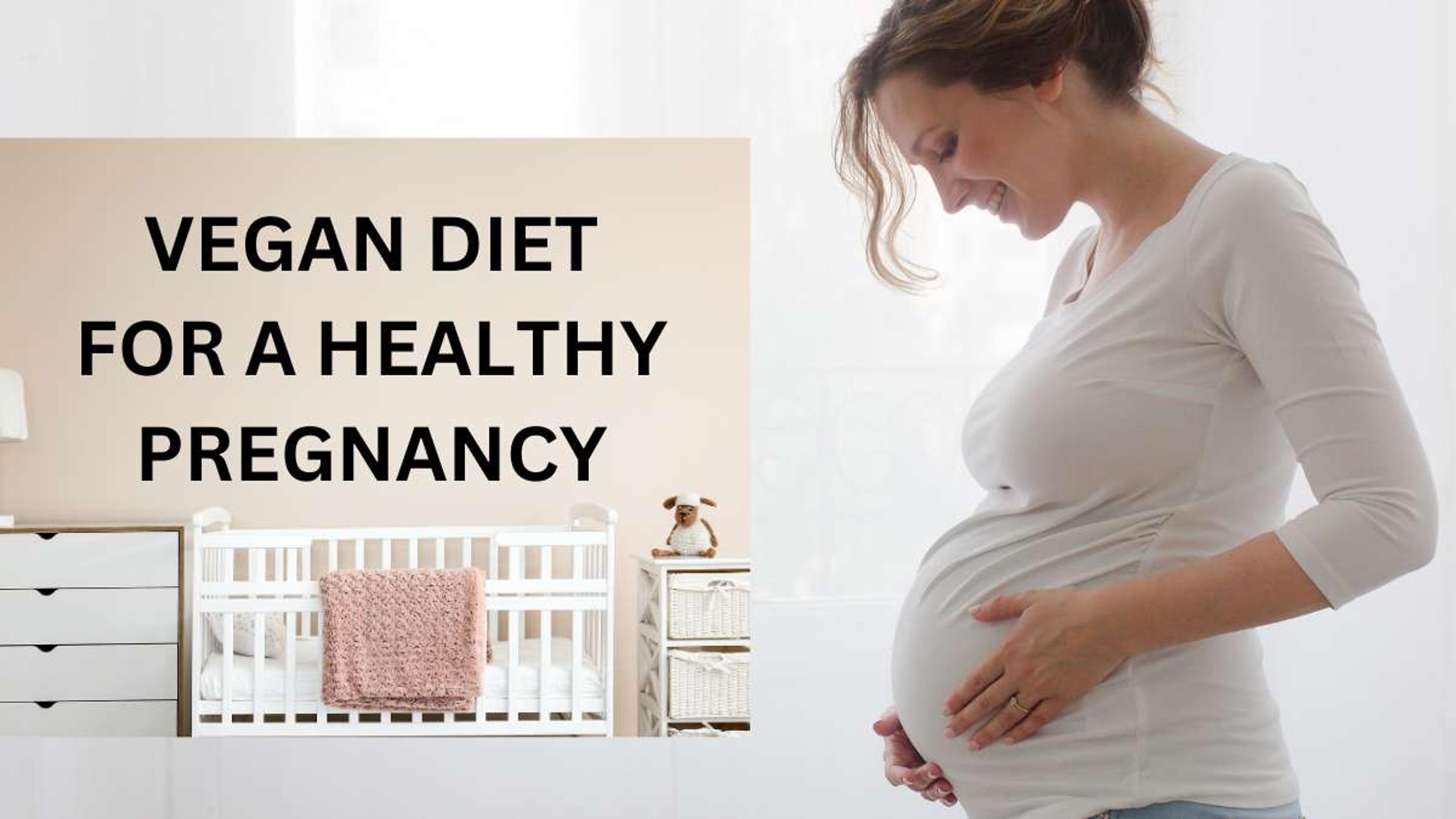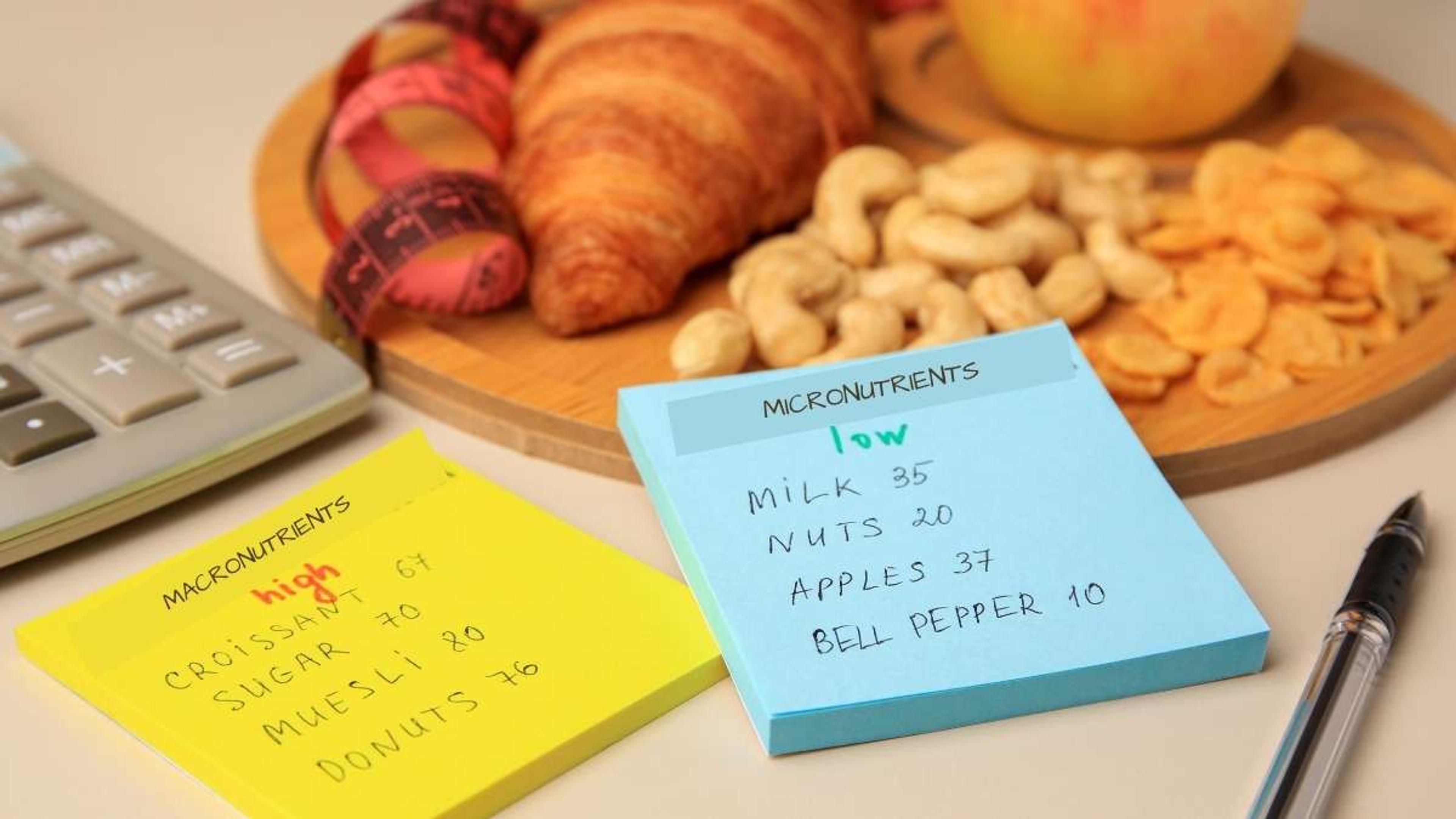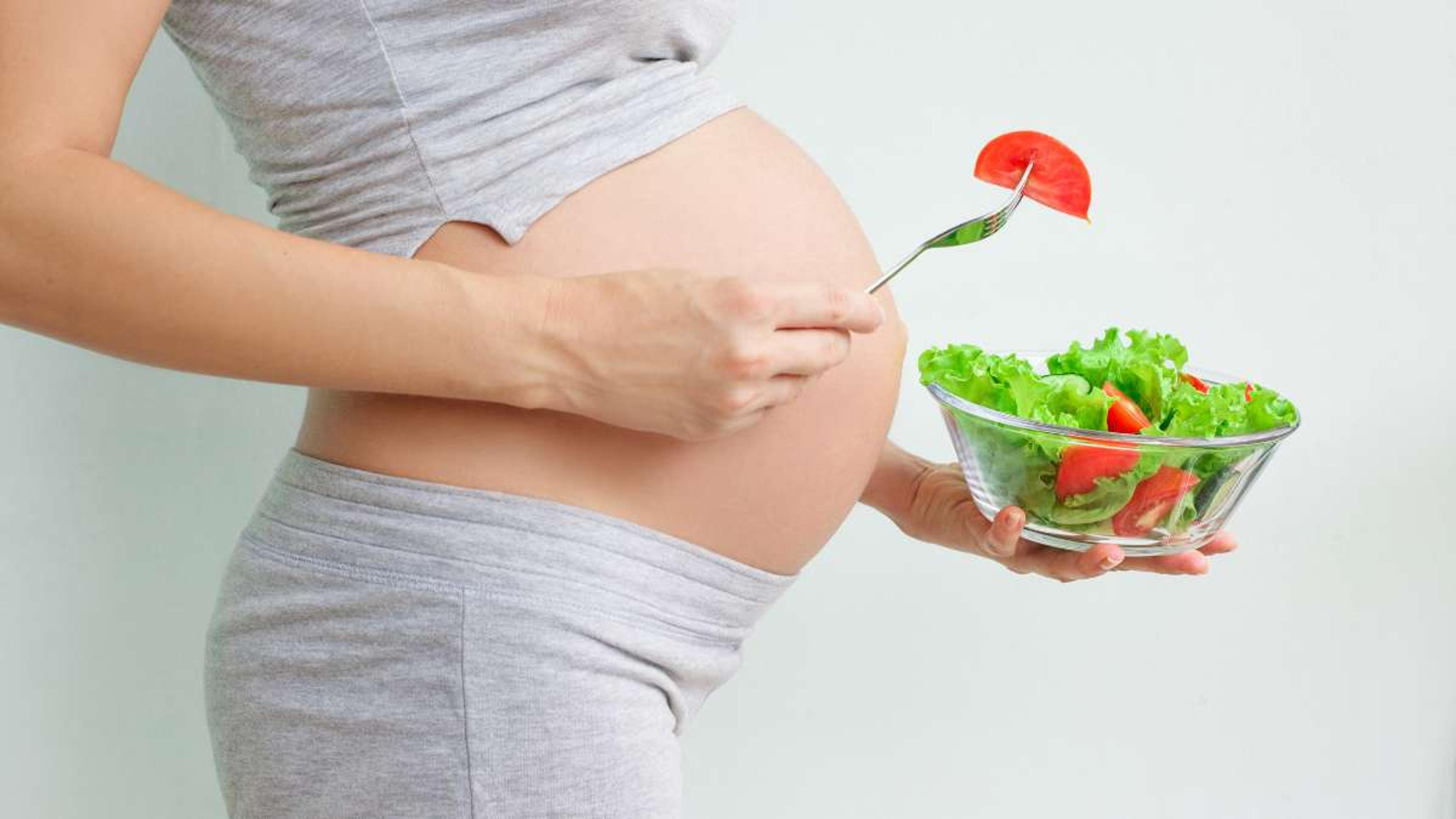A Complete Guide to a Healthy Vegan Diet for Pregnancy

- Key Takeaways
- Essential Nutrients for Vegan Pregnancy
- Meal Planning for Pregnant Vegans
- Addressing Challenges and Myths
- Vegan Supplements and Postpartum Nutrition
- Maintaining a Healthy Vegan Pregnancy
- Conclusion
- FAQs
Deciding on the right diet during pregnancy can be a hurdle, especially if you adhere to veganism. Studies show that a well-planned vegan diet is entirely safe for pregnant women and their developing babies.
This article offers essential tips and guidance about key nutrients, meal planning strategies, and ways to navigate through common challenges for maintaining a healthy and balanced vegan diet during pregnancy. It is important to note that pregnant women may need to increase their intake of certain nutrients, such as iron and calcium, to support the growth and development of the fetus and maintain their own blood volume.
Ready? Let's dive into the world of prenatal nutrition—a journey worth your while!
Key Takeaways
- A well-planned vegan diet is safe and can provide all the essential nutrients needed for a healthy pregnancy.
- Pregnant vegans should ensure sufficient intake of macronutrients like protein, carbs, and fats from sources such as lentils, tofu, fruits, and vegetables.
- Key micronutrients for pregnant vegans include iron (found in beans and leafy greens), calcium (found in kale and soy milk), vitamin B12 (may require fortified foods or supplements), and omega-3 fatty acids (found in chia seeds).
- Creating balanced meal plans with a variety of whole grains, fruits, vegetables, plant-based proteins, healthy fats, calcium-rich foods is important for maintaining a well-rounded vegan pregnancy diet.
Essential Nutrients for Vegan Pregnancy
To ensure a healthy vegan pregnancy, it is crucial to consume sufficient amounts of both macronutrients (such as protein, carbohydrates, and fats) and micronutrients (such as iron, calcium, vitamin B12 and Omega-3).

Sufficient intake of macronutrients: protein, carbs, fats
Macronutrients are the nutrients that our bodies need in larger quantities to provide energy and support various bodily functions. For pregnant women following a vegan diet, it is important to ensure sufficient intake of macronutrients such as protein, carbohydrates, and fats. Here's why;
- Protein is essential for the growth and development of your baby. Good plant-based sources of protein include lentils, tofu, tempeh, quinoa, beans, soy products (ideally unprocessed) and edamame. Incorporating these foods into your meals can help you meet your protein needs during pregnancy. Including a variety of whole grains, legumes, nuts, and seeds in your meals can help provide the necessary for baby's growth protein and energy. If you're a vegetarian, adding yogurt to your diet can provide calcium and protein, which are crucial for fetal development.
- Carbohydrates is essential for pregnancy because they provide the energy needed for both you and your baby. Opt for complex carbohydrates found in whole grains like quinoa, brown rice, and oats. These will keep you full and provide a steady release of energy throughout the day. Supplement your complex carb intake with veggies such as sweet potatoes, broccoli, and leafy greens to ensure a well-rounded pregnancy diet.
- Fats are important as they help with the absorption of fat-soluble vitamins and support your baby's brain development. Choose healthy sources such as avocados, nuts, seeds, and plant-based oils like olive or coconut oil. Including omega-3 fatty acids, found in chia seeds and flaxseeds, is especially crucial for baby's brain development. Nuts, seeds, and soy milk have healthy fats that you need too. It's about eating the right foods in just the right amounts for a healthy baby.
For a healthy pregnancy, it is important to ensure that you are getting enough proteins, carbs, and fats as they are core parts of a vegan diet. They give your body fuel to keep going.
Key micronutrients: iron, calcium, vitamin B12, omega-3 fatty acids
In addition to macronutrients, pregnant women following a vegan diet should pay attention to their micronutrient intake. Micronutrients are essential vitamins and minerals that your body needs in smaller amounts but are still crucial for your overall health and well-being. For pregnant women following a vegan diet, there are several key micronutrients that deserve special attention such as iron, calcium, vitamin B12, and omega-3. Here's why;
- Iron is important for the production of red blood cells and oxygen transport in your body, preventing you from feeling anaemic. Good plant-based sources of iron include leafy greens like spinach and kale, legumes such as lentils and chickpeas, as well as fortified cereals and grains. Pairing these iron-rich foods with sources of vitamin C, like citrus fruits or bell peppers, can help enhance iron absorption and avoid possible iron deficiency.
- Calcium is essential for the development and maintenance of strong bones and teeth. While dairy products are a common source of calcium, there are plenty of plant-based alternatives available for vegans. Foods like tofu, fortified non-dairy milk, leafy greens, and calcium-fortified juices can provide an adequate amount of calcium for you and your baby.
- Vitamin B12 is crucial for the healthy development of your baby's nervous system. Since this vitamin is primarily found in animal products, it's important for pregnant women following a vegan diet to ensure they get enough through fortified foods such as fortified breakfast cereals, plant-based milk alternatives, and nutritional yeast. It may also be necessary to consider taking a B12 supplement to meet your needs during pregnancy.
- Omega-3 fatty acids are essential for the development of your baby's brain and eyes. While fish is a common source of omega-3s, vegans can obtain them from plant-based sources like flaxseeds, chia seeds, hemp seeds, and walnuts. Incorporating these foods into your daily meals can help ensure an adequate intake of omega-3 fatty acids.
- Vitamin D is also a crucial nutrient for pregnancy. Monitor your vitamin D levels during pregnancy, as this nutrient plays a role in bone health and immune function. While sunlight is a natural source of vitamin D, there are plant-based foods vegans can feed on for enough vitamin d intake such as mushrooms, cereals, orange juice, almond milk and rice milk - to name a few.
Lastly, be sure to stay hydrated throughout your pregnancy by drinking plenty of water and other fluids. Water is essential for maintaining proper digestion, circulation, and overall health. Additionally, staying hydrated can help alleviate common pregnancy discomforts such as constipation and swelling. It is recommended that pregnant women drink at least 8-10 glasses of water per day, which is equivalent to approximately 2 liters or 64 grams of water.
To ensure a well-rounded vegan diet during pregnancy, it's important to include a variety of fruits, vegetables, whole grains, legumes, nuts, and seeds that are good sources and cover your micro & macronutrients in your meals for a healthy pregnancy journey both you and your baby.
Plant-based sources of essential nutrients
A vegan diet gives many nutrients. Here are 5 (or more) key plant foods you can count on for each essential nutrient mentioned below :

- Protein: Comes from lentils and tofu. Whole grains, Spinach, Chia Seeds, Quinoa, Pumpkin Seeds & Avocado would also serve as some of your top sources of protein.
- Carbs: Your top sources of carbs would include sweet potatoes, oats, brown rice, beans & lentils and bananas.
- Fats: Avocado, chia seeds, nuts and nut butters such as almonds, walnuts, cashews, flax seeds, not to forget Coconut are packed with healthy fats.
- Iron: Green leafy vegetables like Spinach, broccoli are very high in iron. Combine them with lentils, tofu, quinoa and chickpeas for a nutritious iron-packed meal.
- Calcium: Dark leafy greens such as Kale, collard & bok choy is packed with calcium. Other calcium-rich foods include tofu, fortified plant-based milk (such as soy, almond & oat milk), sesame seeds and fortified Orange juice.
- Vitamin B12: Vegans can find B12 in abundance in seaweed like nori & wake. Other Vitamin B12 rich foods include eggs (if you're vegetarian), nutritional yeast, mushrooms and breakfast cereals with fortified plant-based milks such as soy, almond and oat milk.
- Omega-3 fatty acids: Rich sources of Omega-3 includes flax seeds, chia seeds, walnuts, hemp seeds, edamame, kidney beans, seaweed & algae.
- Zinc: Lentils and legumes such as chickpeas and black beans have a lot of zinc. Other sources such as pumpkin seeds, sunflower seeds, cashews, quinoa, oats, brown rice and tofu are also packed with Zinc.
Meal Planning for Pregnant Vegans
Create well-balanced meal plans incorporating fruits, vegetables, whole grains, and plant-based proteins to ensure sufficient nutrient intake during pregnancy to follow a healthy vegetarian diet during your pregnancy period.

Creating balanced, nutrient-dense meal plans
To maintain a healthy vegan pregnancy, it's important to create balanced and nutrient-dense meal plans that support your baby’s growth. Here are some tips to help you with this:
- Include a variety of whole grains, such as quinoa, brown rice, and oats, in your meals.
- Make sure to incorporate plenty of fruits and vegetables, like kale, broccoli, and oranges.
- Include plant - based proteins in your meals, such as beans, lentils, tofu, and tempeh.
- Don't forget about healthy fats! Incorporate sources like avocados, nuts, seeds (like chia or flax), and olive oil.
- Ensure you're getting enough calcium by including fortified plant-based milk alternatives (like soy or almond milk) and leafy green vegetables in your diet.
- Include foods rich in iron, such as legumes (like chickpeas or black beans), whole grains (like quinoa), dried fruits (like apricots or raisins), and dark leafy greens (like spinach).
- Consider incorporating seaweed for iodine intake if necessary.
- Pay attention to vitamin B12 sources like fortified foods or supplements to meet your needs.
Incorporating fruits, vegetables, whole grains, plant-based proteins
A vegan diet for pregnancy can include a variety of nutritious foods. Here are some ways to incorporate fruits, vegetables, whole grains, and plant-based proteins:
- Enjoy a variety of colorful fruits and vegetables every day. They provide essential vitamins, minerals, and antioxidants for you and your baby's health.
- Include whole grains like quinoa, brown rice, oats, and whole wheat bread in your meals. They are rich in fiber and provide sustained energy.
- Opt for plant - based proteins such as tofu, tempeh, lentils, chickpeas, and beans. These are excellent sources of protein and essential amino acids.
- Make salads with leafy greens like kale or spinach as a base. Add in other veggies like carrots, cucumbers, peppers, and tomatoes for added nutrients.
- Snack on fresh fruits or make smoothies using fruits like berries or bananas. They are packed with vitamins and natural sweetness.
- Incorporate nuts and seeds into your meals or enjoy them as snacks. They provide healthy fats, protein, iron, zinc, and other vital nutrients.
- Experiment with different plant - based recipes that include vegetables or whole grains as the main ingredients.
Monitoring weight gain and caloric intake
During pregnancy, it is important for vegan women to monitor their weight gain and caloric intake, especially to prevent obesity and gestational diabetes. While pregnant vegans generally gain less weight compared to those who consume animal products, it is still essential to ensure appropriate weight gain for the health of both mother and baby.
A balanced vegan diet that includes nutrient-dense foods can provide the necessary calories and nutrients needed during pregnancy. Tracking caloric intake and consulting with a healthcare provider or registered dietitian can help pregnant vegans maintain a healthy weight while meeting their nutritional needs.
It's important for pregnant vegans to focus on consuming energy-dense plant-based foods regularly to support proper growth and development of the baby.
Addressing Challenges and Myths
Learn how to manage nutrient deficiencies, cope with morning sickness and food aversions, and dispel common myths about vegan diets during pregnancy. Unlock the secrets to a healthy vegan pregnancy by reading more!

Managing nutrient deficiencies
During pregnancy, it's important to address nutrient deficiencies that may arise from following a vegan diet. Vegan diets can sometimes lack certain nutrients like protein, iron, calcium, vitamin B12, and omega-3 fatty acids.
To manage these deficiencies, pregnant vegans should include plant-based sources of these essential nutrients in their diet. For example, they can get enough protein from foods like tofu and lentils while ensuring sufficient iron intake by consuming leafy green vegetables and legumes.
Calcium needs can be met through plant-based milk alternatives fortified with calcium or dark leafy greens like kale. It’s also crucial for pregnant vegans to take vitamin B12 supplements since this nutrient is mainly found in animal products and deficiency can lead to complications during pregnancy.
Coping with morning sickness and food aversions
During pregnancy, many women experience morning sickness and food aversions. These are common symptoms influenced by hormone changes and a heightened sense of smell. Nausea and vomiting are often associated with these aversions.
The good news is that vegans may experience fewer symptoms compared to others. Despite these challenges, it's important for pregnant women to eat a balanced diet rich in fiber to provide necessary nutrients for both the mother and baby's growth.
Protein intake can be more challenging during this time, especially for vegans battling nausea. However, there are plant-based sources of protein available that can help meet the recommended intake.
Dispelling myths about vegan diets and pregnancy
Many myths surround the idea that vegan diets are not suitable for pregnancy, but this is simply not true. It is possible to have a healthy and safe pregnancy while following a plant-based diet.
Contrary to popular belief, vegetarians and vegans can get enough protein from their diets by consuming plant sources such as tofu, lentils, and legumes. Additionally, essential nutrients like iron, calcium, and vitamin B12 can be obtained from plant-based foods or vegan-friendly supplements.
With proper meal planning and guidance from a registered dietitian or healthcare provider, pregnant women can meet all their nutritional needs on a vegan diet.
Vegan Supplements and Postpartum Nutrition
It is important for pregnant vegans to ensure they are getting all the necessary nutrients through supplements, such as prenatal vitamins and vegan-friendly options. Consulting with healthcare providers can provide personalized advice on supplement intake during pregnancy and postpartum.
Additionally, vegan moms should consider their postpartum nutrition needs to support recovery and breastfeeding if applicable.
Importance of prenatal vitamins and vegan-friendly supplements
During pregnancy, it is important for vegan individuals to take prenatal vitamins and supplements that are suitable for their plant-based diet. These supplements help fill any nutrient gaps and ensure the health of both the mother and baby.
Prenatal vitamins can provide essential nutrients like folic acid, iron, calcium, and vitamin D that may be challenging to obtain solely from a vegan diet. Vitamin B12 is especially crucial for vegans as it is found mainly in animal products.
Taking a vegan-friendly vitamin B12 supplement can prevent deficiencies and support healthy brain development in the baby. Additionally, vegan moms should consider taking omega-3 fatty acid supplements derived from algae or flaxseed oil to meet their needs for DHA, which aids in fetal brain development.
Consulting with healthcare providers can help determine the right dosage of these supplements based on individual needs. By ensuring adequate intake of necessary vitamins and minerals through prenatal vitamins and vegan-friendly supplements, pregnant vegans can promote a healthy pregnancy for themselves and their babies.
Consulting healthcare providers for personalized advice
Healthcare providers are essential when it comes to getting personalized advice for vegan pregnancy. They can help ensure that a pregnant woman following a vegan diet gets all the necessary nutrients in a well-balanced way.
It is crucial to consult them because they can guide on weight gain, energy requirements, and nutritional needs specific to vegetarian or vegan diets during pregnancy. Additionally, healthcare providers can offer valuable insights and support by recommending appropriate supplements to reduce any risks and ensure optimal nutrition throughout pregnancy.
By working with a healthcare provider who specializes in vegan pregnancy nutrition, women can make informed dietary choices that promote the health of both themselves and their growing baby.
Postpartum nutrition considerations for vegan moms
After giving birth, vegan moms should continue to prioritize their nutrition to support their recovery and breastfeeding journey. It's important for them to focus on consuming a well-rounded diet that includes a variety of plant-based foods.
This can help ensure they are getting the necessary nutrients, such as protein, iron, calcium, and omega-3 fatty acids.
To meet their nutrient needs, vegan moms may need to continue taking prenatal vitamins or consider additional supplements recommended by their healthcare provider. These supplements can help make up for any potential deficiencies in their diet and support both their own health and the health of their baby.
Additionally, it is crucial for vegan moms to listen to their bodies' hunger cues and eat enough calories throughout the day. Breastfeeding requires extra energy expenditure, so it's important that they consume an adequate amount of food to have enough energy for themselves and milk production.
Maintaining a Healthy Vegan Pregnancy
Staying physically active, staying hydrated, managing pregnancy discomforts with a vegan approach, and promoting mental well-being through self-care are important for maintaining a healthy vegan pregnancy. It is important to keep your health care provider well informed of any discomfort you are feeling to ensure you have a healthy pregnancy.

Staying physically active
Staying physically active during pregnancy is important for the overall health of both the mother and baby. It can help reduce constipation, which is a common discomfort during pregnancy.
Regular physical activity combined with a vegan diet can also lower the risk of developing conditions like preeclampsia. The Department of Health recommends that pregnant women engage in regular exercise to maintain good health.
However, there is no evidence linking staying physically active to an increased risk of miscarriage during a vegan pregnancy.
Staying hydrated and listening to the body's needs
During a vegan pregnancy, it's important to stay hydrated and pay attention to what your body needs. Drinking enough water helps maintain a healthy pregnancy by supporting the body's functions and helping with digestion.
It also aids in preventing dehydration, which can lead to complications during pregnancy. Additionally, staying hydrated can help reduce common discomforts such as constipation and swelling.
Remember that every person's hydration needs are unique, so it's important to listen to your body and drink water regularly throughout the day. Aim for about 8-10 cups of fluids daily, including water and other hydrating beverages like herbal tea or infused water with fruits or mint.
Managing pregnancy discomforts with a vegan approach
During pregnancy, it's common to experience discomforts like morning sickness and food aversions. However, with a vegan approach, you can find relief by choosing plant-based foods that are gentle on the stomach.
For example, ginger and peppermint teas can help alleviate nausea, while easily digestible fruits and vegetables provide essential nutrients without causing digestive issues. Additionally, practicing self-care techniques such as relaxation exercises and getting enough rest can promote overall well-being during this special time.
Remember to consult with your healthcare provider for personalized advice on managing these discomforts while maintaining a healthy vegan diet.
Promoting mental well-being through self-care
Taking care of your mental well-being is crucial during pregnancy. Self-care practices can help you feel more relaxed and positive, which can have a significant impact on both you and your baby.
Engaging in activities that bring you joy and reduce stress, such as practicing mindfulness or meditation, going for walks in nature, or indulging in hobbies you love, can all contribute to promoting mental well-being.
It's important to remember that taking care of yourself emotionally is just as important as taking care of yourself physically during this special time.
Conclusion
In conclusion, a well-planned vegan diet can provide all the essential nutrients needed for a healthy pregnancy. By focusing on plant-based sources of protein, iron, calcium, and other vital vitamins and minerals, pregnant vegans can meet their nutritional needs.
With proper meal planning and consultation with healthcare providers or registered dietitians, vegan mothers-to-be can enjoy a nourishing and fulfilling pregnancy journey.
FAQs
1. Is a vegan diet safe during pregnancy?
Yes, a well-planned vegan diet can be safe and healthy during pregnancy, as long as it includes all the necessary nutrients like iron, calcium, vitamin B12, omega-3 fatty acids, and protein.
2. What foods should I include in my vegan diet for a healthy pregnancy?
Include a variety of fruits and vegetables, whole grains, legumes (beans), nuts and seeds in your vegan diet to ensure you get enough essential nutrients for you and your baby's health.
3. Can I meet my nutritional needs without consuming animal products while pregnant?
Yes, with proper planning and attention to nutrient-rich plant-based foods such as leafy greens, fortified cereals or plant milks which are sources of important nutrients like iron and calcium. Supplements may also be recommended by your healthcare provider if needed.
4. Should I consult with a healthcare professional before following a vegan diet during pregnancy?
It is highly recommended to consult with a qualified healthcare professional or registered dietitian before starting or continuing any specific dietary plan during pregnancy. They can provide guidance on meeting nutrient requirements for both mother and baby while adhering to a vegan lifestyle.

